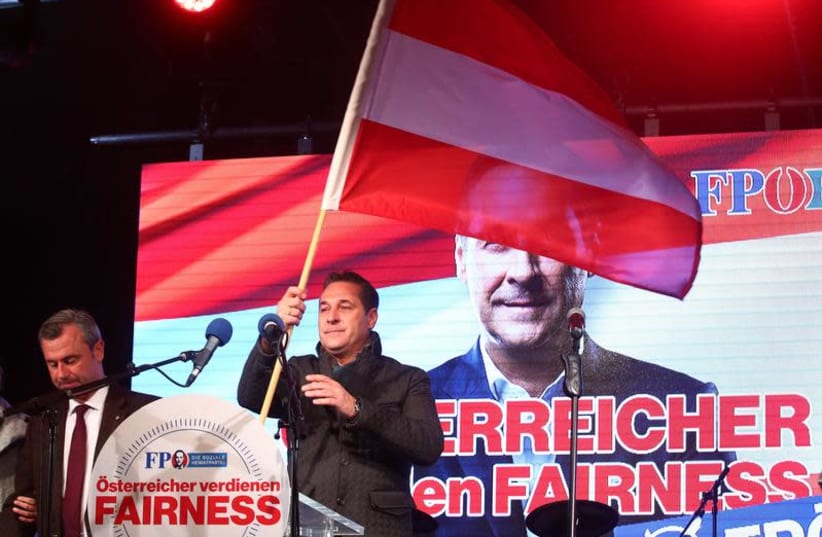A new European foe: Israel challenged by success of far-right Austrian party
Jerusalem will have to tread carefully as it calculates its reaction to the rise of Austria's far-right Freedom Party, which holds views that are not supportive of the Jewish state.
